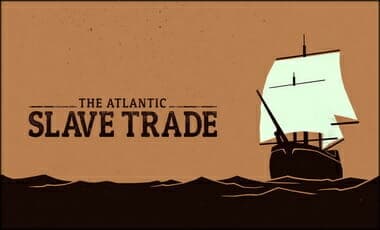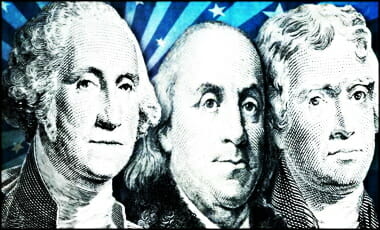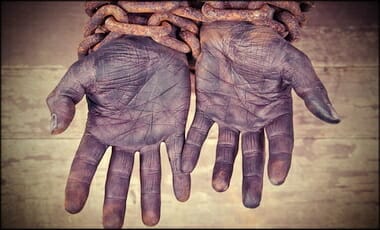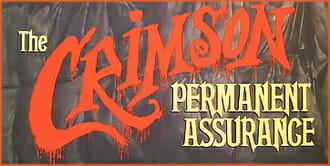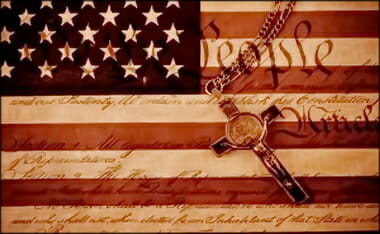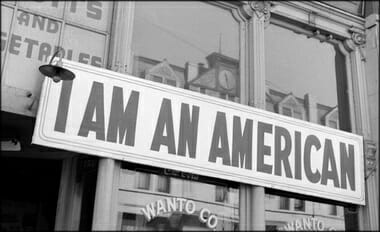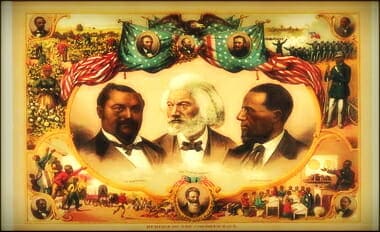- “…virtually every significant racist in American political history was a Democrat.” — Bruce Bartlett, Wrong on Race: The Democratic Party’s Buried Past (New York, NY: Palgrave MacMillan, 2008), ix;
- “…not every Democrat was a KKK’er, but every KKK’er was a Democrat.” — Ann Coulter, Mugged: Racial Demagoguery from the Seventies to Obama (New York, NY: Sentinel [Penguin], 2012), 19.
THE SWITCH
Just a quick intro to this video, it was at a Young American’s Foundation sponsored eveny at the University of Wisconsin, and a professor gets up to correct D’Souza on the Dixiecrat’s all becoming Republicans. It didn’t go well for the professor:
From a wonderful article from Freedom’s Journal Institute’s series, URBAN LEGENDS: The Dixiecrats and the GOP…
THE DIXIECRATS
…During the Philadelphia nominating convention of the Democrat Party in 1948 a number of disgruntled southern segregationist democrats stormed out in protest. They were upset about planks in the new platform that supported Civil Rights.[1]
They left to form a new Party called the State’s Rights Democratic Party also known as the Dixiecrats. Segregationist like George Wallace and other loyalists, although upset, did not bolt from the party; but instead supported another candidate against Harry Truman. According to Kari Frederickson, the goal for the Dixiecrats “was to win the 127 electoral-college votes of the southern states, which would prevent either Republican Party nominee Thomas Dewy or Democrat Harry Truman from winning the 266 electoral votes necessary for election. Under this scenario, the contest would be decided by the House of Representatives, where southern states held 11 of the 48 votes, as each state would get only one vote if no candidate received a majority of electors’ ballots. In a House election, Dixiecrats believed that southern Democrats would be able to deadlock the election until one of the parties had agreed to drop its civil rights plank.”[2]
Notably, this stated aim is apparent in the third plank of the Dixiecrat’s platform which states, “We stand for social and economic justice, which, we believe can be guaranteed to all citizens only by a strict adherence to our Constitution and the avoidance of any invasion or destruction of the constitutional rights of the states and individuals. We oppose the totalitarian, centralized bureaucratic government and the police nation called for by the platforms adopted by the Democratic and Republican Conventions.”[3]
What is even more telling, and speaks directly to the incredulous nature of this urban legend, is the fact that the Dixiecrats rejected the Civil rights platforms of not one, but both parties. Republicans had always supported civil rights since their inception (see GOP party platform here). What was new is that the Democrats, led by Harry Truman, were publicly taking a stand for Civil rights (see Democrat Party Platform here). The ‘totalitarian, centralized bureaucratic government”, according to the Dixiecrats, was the federal government’s enforcement of the 14th and 15th amendments to the U.S. Constitution. With both parties, now, standing for Civil rights the segregationist had no party to go too. Thus, they started their own with the idea of causing a stalemate, which they hoped to break, once both parties relinquished their pro-civil rights planks.
Which way did they go?
The strategy of the State’s Rights Democratic Party failed. Truman was elected and civil rights moved forward with support from both Republicans and Democrats. This begs an answer to the question: So where did the Dixiecrats go? Contrary to legend, it makes no sense for them to join with the Republican Party whose history is replete with civil rights achievements. The answer is, they returned to the Democrat party and rejoined others such as George Wallace, Orval Faubus, Lester Maddox, and Ross Barnett. Interestingly, of the 26 known Dixiecrats (5 governors and 21 senators) only three ever became republicans: Strom Thurmond, Jesse Helms and Mills E. Godwind, Jr. The segregationists in the Senate, on the other hand, would return to their party and fight against the Civil Rights acts of 1957, 1960 and 1964. Republican President Dwight Eisenhower proffered the first two Acts.
Eventually, politics in the South began to change. The stranglehold that white segregationist democrats once held over the South began to crumble. The “old guard” gave way to a new generation of politicians. The Republican Party saw an opportunity to make in-roads into the southern states appealing to southern voters. However, this southern strategy was not an appeal to segregationists, but to the new political realities emerging in the south.[4]…
[1] See the 1948 Democrat Party Platform.
[2] Encyclopedia of Alabama – Dixiecrat.
[3] Read more at the American Presidency Project.
[4] I will talk more about the Southern Strategy in another article.
Here is another great excerpt from Ann Coulter from her excellent book, Mugged, regarding this “change dealing with Senators:
In 1948, Thurmond did not run as a “Dixiecan,” he ran as a “Dixiecrat.” As the name indicates, the Dixiecrats were an offshoot of the Democratic Party. When he lost, Thurmond went right back to being a Democrat.
All segregationists were Democrats and—contrary to liberal fables—the vast majority of them remained Democrats for the rest of their lives. Many have famous names—commemorated in buildings and statues and tribute speeches by Bill Clinton. But one never hears about their segregationist pasts, or even Klan memberships. Among them are: Supreme Court justice Hugo Black; Governor George Wallace of Alabama; gubernatorial candidate George Mahoney of Maryland; Bull Connor, Commissioner of Public Safety for Birmingham, Alabama; Governor Orval Faubus of Arkansas; and Governor Lester Maddox of Georgia.
But for practical purposes, the most important segregationists were the ones in the U.S. Senate, where civil rights bills went to die. All the segregationists in the Senate were of course, Democrats. All but one remained Democrats for the rest of their lives—and not conservative Democrats. Support for segregation went hand in hand with liberal positions on other issues, too.
The myth of the southern strategy is that southern segregationists were conservatives just waiting for a wink from Nixon to switch parties and join the Reagan revolution. That could not be further from the truth. With the exception of Strom Thurmond—the only one who ever became a Republi-can—they were almost all liberals and remained liberals for the rest of their lives. Of the twelve southern segregationists in the Senate other than Thurmond, only two could conceivably be described as “conservative Democrats.”
The twelve were:
- Senator Harry Byrd (staunch opponent of anti-communist Senator Joseph McCarthy);
- Senator Robert Byrd (proabortion, opponent of 1990 Gulf War and 2002 Iraq War, huge pork barrel spender, sending more than $1 billion to his home state during his tenure, supported the Equal Rights Amendment, won a 100 percent rating from NARAL Pro-Choice America and a 71 percent grade from the American Civil Liberties Union in 2007);
- Senator Allen Ellender of Louisiana (McCarthy opponent, pacifist and opponent of the Vietnam War);
- Senator Sam Ervin of North Carolina (McCarthy opponent, anti-Vietnam War, major Nixon antagonist as head the Watergate Committee that led to the president’s resignation);
- Senator Albert Gore Sr. of Tennessee (ferocious McCarthy opponent despite McCarthy’s popularity in Tennessee, anti-Vietnam War);
- Senator James Eastland of Mississippi (conservative Democrat, though he supported some of FDR’s New Deal, but was a strong anti-communist);
- Senator J. William Fulbright of Arkansas (staunch McCarthy opponent, anti-Vietnam War, big supporter of the United Nations and taxpayer-funded grants given in his name);
- Senator Walter F. George of Georgia (supported Social Security Act, Tennessee Valley Authority and many portions of the Great Society);
- Senator Ernest Hollings (initiated federal food stamp program, supported controls on oil, but later became a conservative Democrat, as evidenced by his support for Clarence Thomas’s nomination to the Supreme Court);
- Senator Russell Long (Senate floor leader on LBJ’s Great Society programs);
- Senator Richard Russell (strident McCarthy opponent, calling him a “huckster of hysteria,” supported FDR’s New Deal, defended Truman’s firing of General Douglas MacArthur, mildly opposed to the Vietnam War);
- Senator John Stennis (won murder convictions against three blacks based solely on their confessions, which were extracted by vicious police floggings, leading to reversal by the Supreme Court; first senator to publicly attack Joe McCarthy on the Senate floor; and, in his later years, opposed Judge Robert Bork’s nomination to the Supreme Court).
The only Democratic segregationist in the Senate to become a Republican—Strom Thurmond—did so eighteen years after he ran for president as a Dixiecrat. He was never a member of the terroristic Ku Klux Klan, as Hugo Black and Robert Byrd had been. You could make a lot of money betting people to name one segregationist U.S. senator other than Thurmond. Only the one who became a Republican is remembered for his dark days as a segregationists Democrat.
As for the remaining dozen segregationists, only two—Hollings and Eastland—were what you’d call conservative Democrats. The rest were dyed-in-the-wool liberals taking the left-wing positions on issues of the day. Segregationist beliefs went hand in hand with opposition to Senator Joe McCarthy, opposition to the Vietnam War, support for New Deal and Great Society programs, support for the United Nations, opposition to Nixon and a 100 percent rating from NARAL. Being against civil rights is now and has always been the liberal position.
- Ann Coulter, Mugged: Racial Demagoguery from the Seventies to Obama (New York, NY: Sentinel [Penguin], 2012), 176-178.
OPPOSING CIVIL RIGHTS
Related as well is the recorded votes of which party supported the Civil Rights history regarding persons of color
WHICH PARTY OPPOSED CIVIL RIGHTS?
The voting rolls of the Civil Rights laws speak for themselves. The Civil Rights Act of 1964 passed the House with 153 out of 244 Democrats voting for it, and 136 out of 171 Republicans. This means that 63 percent of Democrats and 80 percent of Republicans voted “yes.” In the Senate, 46 out of 67 Democrats (69 percent) and 27 out of 33 Republicans (82 percent) supported the measure.
The pattern was similar for the Voting Rights Act of 1965. It passed the House 333-85, with 24 Republicans and 61 Democrats voting “no.” In the Senate, 94 percent of Republicans compared with 73 percent of Democrats supported the legislation.
Here’s a revealing tidbit: had Republicans voted for the Civil Rights laws in the same proportion as Democrats, these laws would not have passed. Republicans, more than Democrats, are responsible for the second civil rights revolution, just as they were solely responsible for the first one. For the second time around, Republicans were mainly the good guys and Democrats were mainly the bad guys.
Here’s further proof: the main opposition to the Civil Rights Movement came from the Dixiecrats. Note that the Dixiecrats were Democrats; as one pundit [Coulter] wryly notes, they were Dixiecrats and not Dixiecans.
The Dixiecrats originated as a breakaway group from the Democratic Party in 1948. For a time, the Dixiecrats attempted to form a separate party and run their own presidential ticket, but this attempt failed and the Dixiecrats reconstituted themselves as a rebel faction within the Democratic Party.
Joined by other Democrats who did not formally ally themselves with this faction, the Dixiecrats organized protests against desegregation rulings by the Supreme Court. Dixiecrat governors refused to enforce those rulings. Dixiecrats in the Senate also mounted filibusters against the Civil Rights Act of 1957 and the Civil Rights Act of 1964. Johnson’s Democratic allies in Congress required Republican votes in order to defeat a Dixiecrat-led filibuster and pass the Civil Rights Act of 1964.
Leading members of the Dixiecrat faction were James Eastland, Democrat from Mississippi; John Stennis, Democrat from Mississippi; Russell Long, Democrat from Louisiana; Strom Thurmond, Democrat from South Carolina; Herman Talmadge, Democrat from Georgia; J. William Fulbright, Democrat from Arkansas; Lester Maddox, Democrat from Georgia; Al Gore Sr., Democrat from Tennessee; and Robert Byrd, Democrat from West Virginia. Of these only Thurmond later joined the Republican Party. The rest of them remained Democrats.
The Dixiecrats weren’t the only racists who opposed civil rights legislation. So did many other Democrats who never joined the Dixiecrat faction. These were racists who preferred to exercise their influence within the Democratic Party, which after all had long been the party of racism, rather than create a new party. Richard Russell of Georgia—who now has a Senate Building named after him—and James Eastland of Mississippi are among the segregationist Democrats who refused to join the Dixiecrat faction.
Now the GOP presidential candidate in 1964, Barry Goldwater, did vote against the Civil Rights Act. But Goldwater was no racist. In fact, he had been a founding member of the Arizona NAACP. He was active in integrating the Phoenix public schools. He had voted for the 1957 Civil Rights Act.
Goldwater opposed the 1964 act because it outlawed private as well as public discrimination, and Goldwater believed the federal government did not have legitimate authority to restrict the private sector in that way. I happen to agree with him on this—a position I argued in The End of Racism. Even so, Goldwater’s position was not shared by a majority of his fellow Republicans.
It was Governor Orval Faubus, Democrat of Arkansas, who ordered the Arkansas National Guard to stop black students from enrolling in Little Rock Central High School—until Republican President Dwight Eisenhower sent troops from the 101st Airborne to enforce desegregation. In retaliation, Faubus shut down all the public high schools in Little Rock for the 1958-59 school year.
It was Governor George Wallace, Democrat of Alabama, who attempted to prevent four black students from enrolling in elementary schools in Huntsville, Alabama, until a federal court in Birmingham intervened. Bull Connor, the infamous southern sheriff who unleashed dogs and hoses on civil rights protesters, was a Democrat.
Progressives who cannot refute this history—facts are stubborn things—nevertheless create the fantasy of a Nixon “Southern strategy” that supposedly explains how Republicans cynically appealed to racism in order to convert southern Democrats into Republicans. In reality Nixon had no such strategy—as we have seen, it was Lyndon Johnson who had a southern strategy to keep blacks from defecting to the Republican Party. Johnson, not Nixon, was the true racist, a fact that progressive historiography has gone to great lengths to disguise.
Nixon’s political strategy in the 1968 campaign is laid out in Kevin Phillips’s classic work The Emerging Republican Majority. Phillips writes that the Nixon campaign knew it could never win the presidency through any kind of racist appeal. Such an appeal, even if it won some converts in some parts of the Lower South, would completely ruin Nixon’s prospects in the rest of the country. Nixon’s best bet was to appeal to the rising middle classes of the Upper South on the basis of prosperity and economic opportunity. This is exactly what Nixon did.
There are no statements by Nixon that even remotely suggest he appealed to racism in the 1968 or 1972 campaigns. Nixon never displayed the hateful, condescending view of blacks that Johnson did. The racist vote in 1968 didn’t go to Nixon; it went to George Wallace. A longtime Democratic segregationist, Wallace campaigned that year on an independent ticket. Nixon won the election but Wallace carried the Deep South states of Arkansas, Louisiana, Mississippi, Alabama, and Georgia.
Nixon supported expanded civil rights for blacks throughout his career while Johnson was—for the cynical reasons given above—a late convert to the cause. Nixon went far beyond Johnson in this area; in fact, Nixon implemented America’s first affirmative action program which involved the government forcing racist unions in Philadelphia to hire blacks.
To sum up, starting in the 1930s and continuing to the present, progressive Democrats developed a new solution to the problem of what they saw as useless people. In the antebellum era, useless people from the Democratic point of view were mainly employed as slaves. In the postbellum period, southern Democrats repressed, segregated, and subjugated useless people, seeking to prevent them from challenging white supremacy or voting Republican. Meanwhile, northern progressives like Margaret Sanger sought to prevent useless people from being born. Today’s progressives, building on the legacy of Wilson, FDR, and Johnson, have figured out what to do with useless people: turn them into Democratic voters.
- Dinesh D’Souza, Hillary’s America: The Secret History of the Democratic Party (New Jersey, NJ: Regnery Publishing, 2016), 141-144.
For MANY MORE resources on this topic,
see my page titled, “U.S. RACIAL HISTORY“

